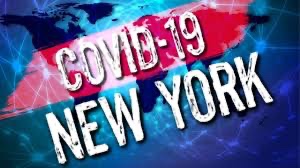Jeffrey W. Pagano is the Partner in charge of our Labor & Employment Practice.
Thursday, March 19, 2020, Governor Cuomo amended his recently issued Executive Order No. 202.6 to mandate that businesses and not-for-profit entities reduce their in-person workforce by 75 percent, no later than Friday, March 20, 2020 at 8:00 pm. Due to the increase in positive tests arriving from the mobile test sights in the 24 hours period, Governor Cuomo announced on Friday, March 20, 2020 that he was amending Executive Order No. 202.6 issued the previous day to require the reduction of the in-person workforce to 100 percent of the employees employed by “non-essential” businesses, effective no later than Sunday, March 22 2020 by 8 pm. Businesses should also, to the maximum extent possible, utilize any telecommuting or work from home procedures. Essential services and entities are exempt from the in-person restriction. The Executive Order also suspends restrictions on individuals holding office and current and former state officers and employees.
This Executive Order adds to the restrictions placed on the New York workforce. On Monday, March 16, 2020, Governor Cuomo directed local New York governments to reduce their workforce capacity to 50 percent and allow nonessential employees to work from home. The governor also ordered all restaurants, bars, gyms, and movie theaters to close until further notice, and indoor portions of retail shopping malls, amusement parks, and bowling alleys must close by 8:00 pm today.
How does this affect employers?
Employers in New York State that do not provide “essential services” must cap their workforce working outside of the home at 25 percent. Additionally, Governor Cuomo signed a program bill yesterday, which guarantees paid sick leave for those in mandatory or precautionary quarantine. The amount of paid leave correlates with the employer’s size:
10 or fewer employees and a net income less than $1 million: Must provide job protection and guarantee workers access to Paid Family Leave and short-term disability benefits, including wage replacement for their salaries up to $150,000, for the duration of the quarantine order.
11-99 employees or 10 or fewer employees with net income greater than $1 million: Must provide 5 days of paid sick leave, as well as job protection and guarantee workers access to Paid Family Leave and short-term disability benefits, including wage replacement for their salaries up to $150,000, for the duration of the quarantine order.
100 or more employees and all public employers: Must provide at least 14 days of paid sick leave and guarantee job protection for the duration of the quarantine order.
What are essential services and entities?
The Executive Order lists the following services and businesses as essential and exempt from the in-person restriction:
Essential health care operations, including research and laboratory services;
Essential infrastructure, including utilities, telecommunication, airports, and transportation services;
Essential manufacturing, including food processing and pharmaceuticals;
Essential retail, including grocery stores and pharmacies;
Trash collection;
Mail;
Shipping services;
News media;
Banks and related financial institutions;
Providers of basic necessities to economically disadvantage populations;
Construction;
Vendors of essential services necessary to maintain the safety, sanitation, and essential operations of residences or other essential businesses;
Vendors that provide logistics and technology support;
Child care;
Services needed to ensure the continuing operation of government agencies and provide for the health, safety, and welfare of the public.
Can businesses request an exemption as an essential service?
Yes, businesses may request an opinion from the Empire State Development Corporation (ESDC). The ESDC will review and determine if it is in the best interest of the state to have the workforce continue at full capacity in order to properly respond to the disaster by no later than 5:00 pm today, March 19, 2020. Businesses may send their requests to COVID19BusinessWaiver@esd.ny.gov.
How are current or former state officers affected?
Laws restricting individuals from holding office are suspended to allow necessary volunteers to provide effective and efficient emergency response, and the section of the Public Officers Law that defines “state officer or employee” will not apply to volunteers. Additionally, laws against state officers, employees, and agencies receiving gifts are suspended to allow for contributions and donations to New York State in response to the emergency.
Laws preventing former state officers and employees from appearing or practicing before their former agency or rendering other services within two years are similarly suspended.
How long is the Executive Order in effect?
The Executive Order is in effect until April 17, 2020.
What are the consequences of failing to comply with this order?
The exact consequences have not been disclosed, however, this Executive Order is mandatory on all non-essential New York businesses.
What counties are affected?
The Executive Order is a statewide mandate.





